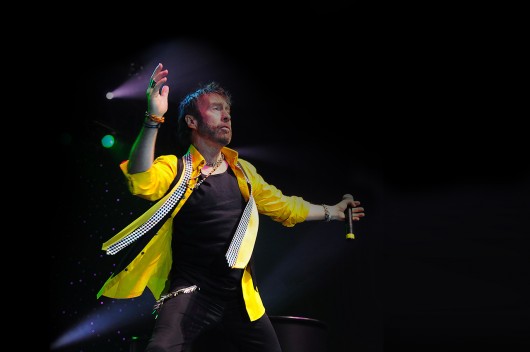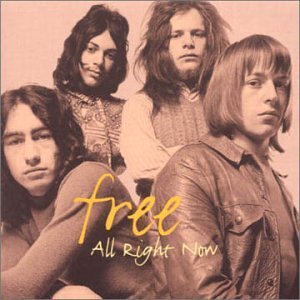Paul Rodgers gives back to the blues
Posted on November 9, 2015 By Mike Ross Entertainment, Front Slider, Music, music
 Speaking of cultural appropriation, privileged white rock musicians have been making a killing by ripping off poor black musicians long before anyone uttered the words “cultural appropriation.”
Speaking of cultural appropriation, privileged white rock musicians have been making a killing by ripping off poor black musicians long before anyone uttered the words “cultural appropriation.”
Examples are numerous: From Elvis to the Beatles to Justin Timberlake to Madonna, they all “borrowed.” They had big hits and became rich and famous. Meanwhile, innovators like Chuck Berry, Little Richard and Bo Diddley have not been properly rewarded for their gift to the world, a little thing called “rock ‘n’ roll.” Sure, the argument can be made that once a piece of music is heard it is no longer the sole property of its creator; it belongs to the beholders to use as they please. But when poor old bluesmen are looking in vain for the old bluesmen’s home while ZZ Top makes a mint stealing John Lee Hooker’s mojo, you have to wonder if affirmative action is called for. Where are the lawyers for the Marvin Gaye estate when you need them?
Meanwhile, Paul Rodgers is giving back.
Playing Thursday, Nov. 12 at the River Cree Casino, the British rocker has taken the unheard-of step of donating 100% the profits from his latest album, The Royal Sessions, to the Stax Music Academy in Memphis, where the album was recorded; it contains covers of Otis Redding, Albert King and Booker T. Jones, among other Memphis legends.

Albert King
Rodgers explains his decision, “My producer Perry Margouleff and myself were staying in this rather nice hotel and going every day to, really, the ghetto, where the Royal Studios stands, proudly in the middle of all this, all these broken down homes, and I’m not putting it down, I’m just stating a fact. And we would drive from our nice hotel and think, this music has given us so much, and here we are. We’re back. And we’re kind of taking something again. So we looked at each other and said, ‘so let’s give back.’”
No money, no matter. “It’s a labour of love,” Rodgers says. Besides, he already makes a lot of money, from live performances and radio royalties and licensing from All Right Now and other hits from his bands Free and Bad Company – which both borrowed heavily from the American blues and soul traditions.
On alleged cultural appropriation, Rodgers considers it more of an “exchange.”
He recalls his boyhood in blue collar Middlesbrough, UK, in the 1950s, “We first heard the blues and heard a lot of Elvis and a lot of great artists of the day coming over to us. We thought, oh, that’s good. Let’s see if we can do that. We put a twist on it and brought it back, and people went, oh, that’s different. It’s been a back and forth thing. It’s been beneficial.”
The Beatles were influential, too. Rodgers and his mates identified with the band that came from another working class English town, “And I thought, if these guys can do it, maybe we can, too. It’s not where you come from. It’s the power of the music that comes through you.”
Reminded just how beneficial American blues turned out to be for British rock, he says, “It’s almost like the Atlantic Ocean separates us and creates this tension, a pressure cooker on both sides. The English scene has evolved and then gone to America, and vice versa. Jimi Hendrix had to come to England before he was discovered, and then went he went back to America and they went, oh, yeah, now we get it … Also, he had a British rhythm section.”
 The 65-year-old singer makes no apologies for having loved Wilson Pickett or the Beatles so much that he wanted play music just like them. Rodgers says he came up with All Right Now as a reaction to Free’s early days in the late 1960s when they were trying to put an all-original set together – but could never get away without playing their audience’s favourite song, The Hunter, by Albert King. “We said to ourselves: We’ve got to have a song that’s better than the damned Hunter,” Rodgers says, “Something people can sing along with. Something simple.”
The 65-year-old singer makes no apologies for having loved Wilson Pickett or the Beatles so much that he wanted play music just like them. Rodgers says he came up with All Right Now as a reaction to Free’s early days in the late 1960s when they were trying to put an all-original set together – but could never get away without playing their audience’s favourite song, The Hunter, by Albert King. “We said to ourselves: We’ve got to have a song that’s better than the damned Hunter,” Rodgers says, “Something people can sing along with. Something simple.”
Then he starts singing All Right Now on the phone. Obviously he isn’t tired of that one yet.
“It really is an exchange of ideas,” he goes on. “I’m very, very grateful for the blues, and for rock ‘n’ roll – because it set me free.”











